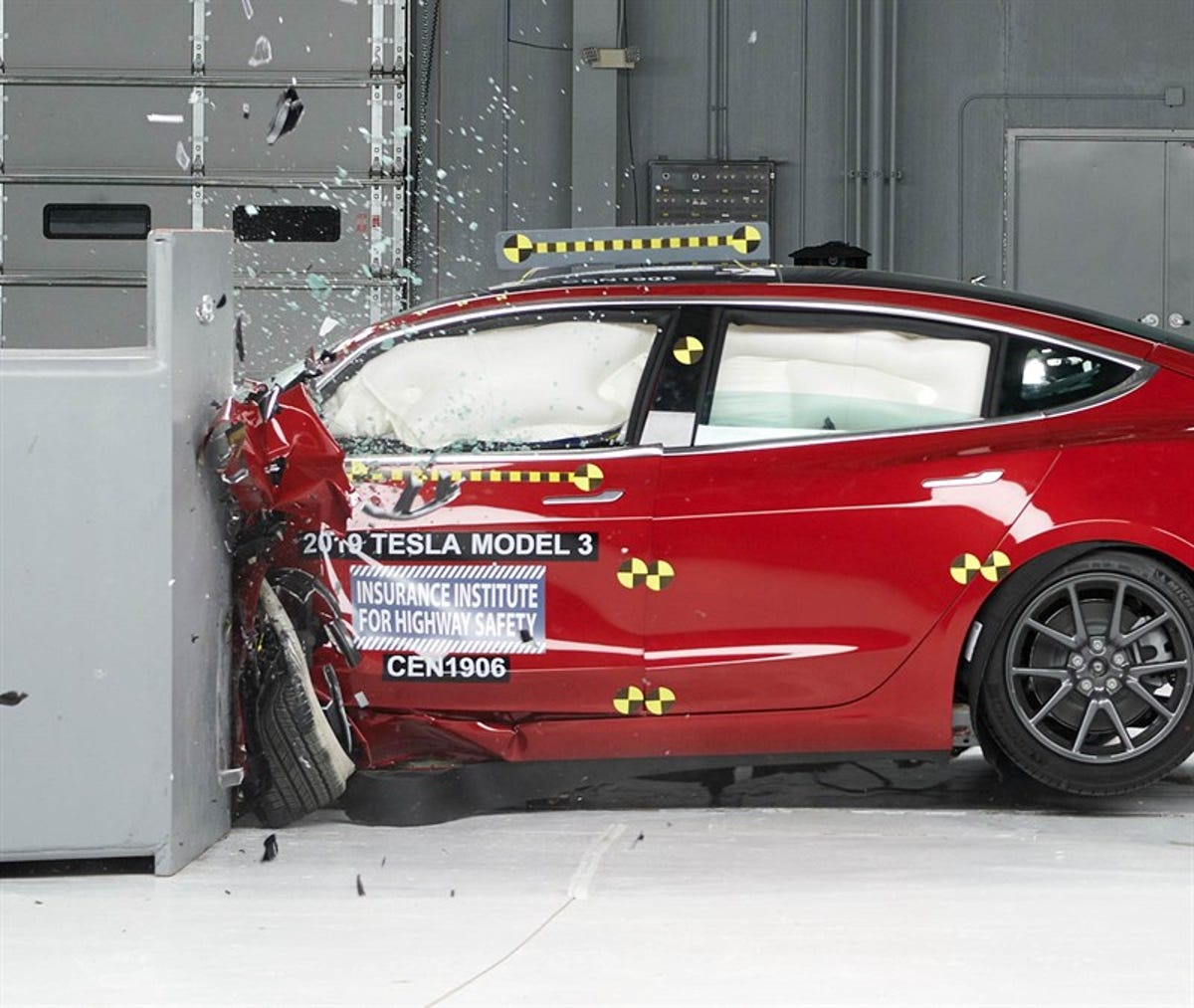
How Electric Cars Are Crash Tested for Top Safety Ratings – By Brian Cooley (CNET) / Jan 14, 2023
It’s becoming clear that being in an EV could save your life — if it doesn’t catch fire.
This story is part of Plugged In, CNET’s hub for all things EV and the future of electrified mobility. From vehicle reviews to helpful hints and the latest industry news, we’ve got you covered.
Electric cars are different in many ways and one of them is the way they crash. But are they better or worse than a conventional car?
The Insurance Institute for Highway Safety, the best-known evaluator of vehicle safety, recently tuned up the building where it crashes cars to make sure it can handle heavier ones up to 9,500 pounds. That’s far above the average new car weight of 4,100 pounds but just barely enough to test an electric Hummer pickup at 9,100 pounds and the presumably heavier electric Hummer SUV that arrives in the spring of 2023. Even the comparatively svelte Volvo EX90 weighs 6,200 pounds, the Mercedes EQS 6,000 pounds and a Tesla Model S sedan can hit 4,800 pounds.
All that lard is a good thing if it’s surrounding you in a crash: Heavier cars tend to push lighter cars around, transferring less energy to the heavier car’s occupants. And EVs carry their extra bulk down low, giving them a low center of gravity that resists rollovers.
CONTINUE > https://www.cnet.com/roadshow/news/how-electric-cars-are-crash-tested-for-top-safety-ratings/


















